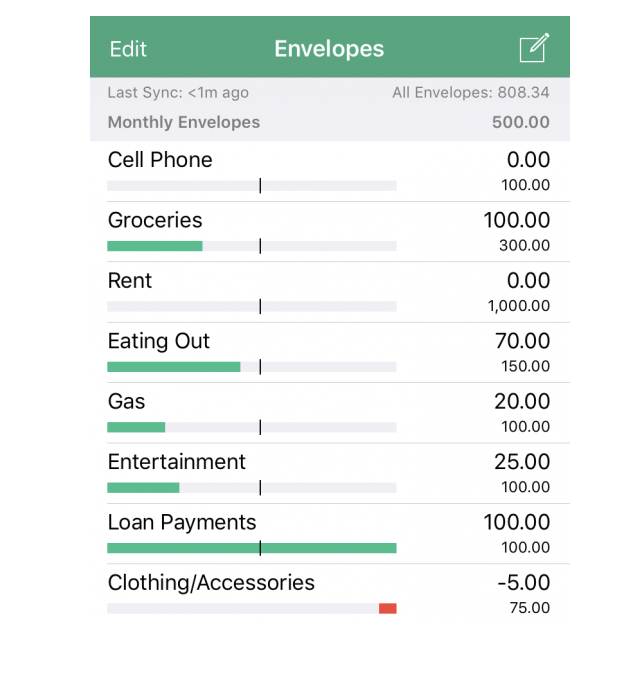Everyone wants to be a money master. Or, at least feel in control of their wallet.
While we can’t always control our salaries or the fact that taxes are taken out of our accounts, there are some useful tools out there that do a great job helping you make the most out of the money you have.
Here’s a roundup of some of the best apps for money. Whether you’re trying to grow a nest egg or just hang onto a few more bucks each month.
Best apps to manage your money
Mint
The budgeting app is one of the more popular financial management tools on the web. They’ve managed to amass over 20 million users through their collection of convenient reporting features. Mint syncs with investment accounts, your bank and credit cards, so no manual entry.
Oh, and there’s also a free credit reporting tool, so you can keep tabs on your score and you know, work on raising that number that unlocks so many of life’s great advantages.
What’s more, users can customize spending categories, pay their bills, and divide ATM withdrawals into different categories, so cash transactions don’t need to go undocumented. You can also set budgets and receive alerts when you’re reaching your limit.
The app automatically updates and categorizes transactions, allowing you to get a sense of where your finances stand at any given time.
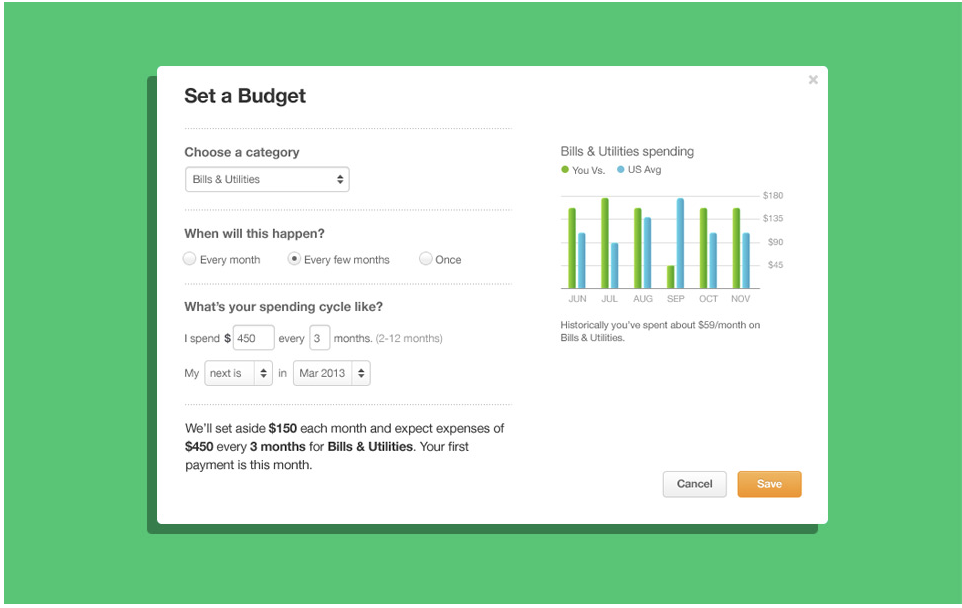
Acorns
So Acorns isn’t exactly a budgeting tool, but they do make it super easy for users to save money. Acorns is an investment app that allows users to automatically invest their spare change from debit and credit card purchases.
The app isn’t exactly for serious investors, but it may be a good tool for people who want to start investing small amounts or who struggle to save. You can set an automatic monthly payment, so you’ll mindlessly invest $10, $20, or $100 each month without having to do anything.
And, like Bank of America’s keep the change feature, and other spare change tools, Acorns rounds transactions to the nearest dollar and sends that extra few cents here and there to an investment account.
Accounts come with modest fees, too. You’ll pay $1 a month on accounts with balances under $5,000, or 0.25% per year on balances above that $5,000 mark.
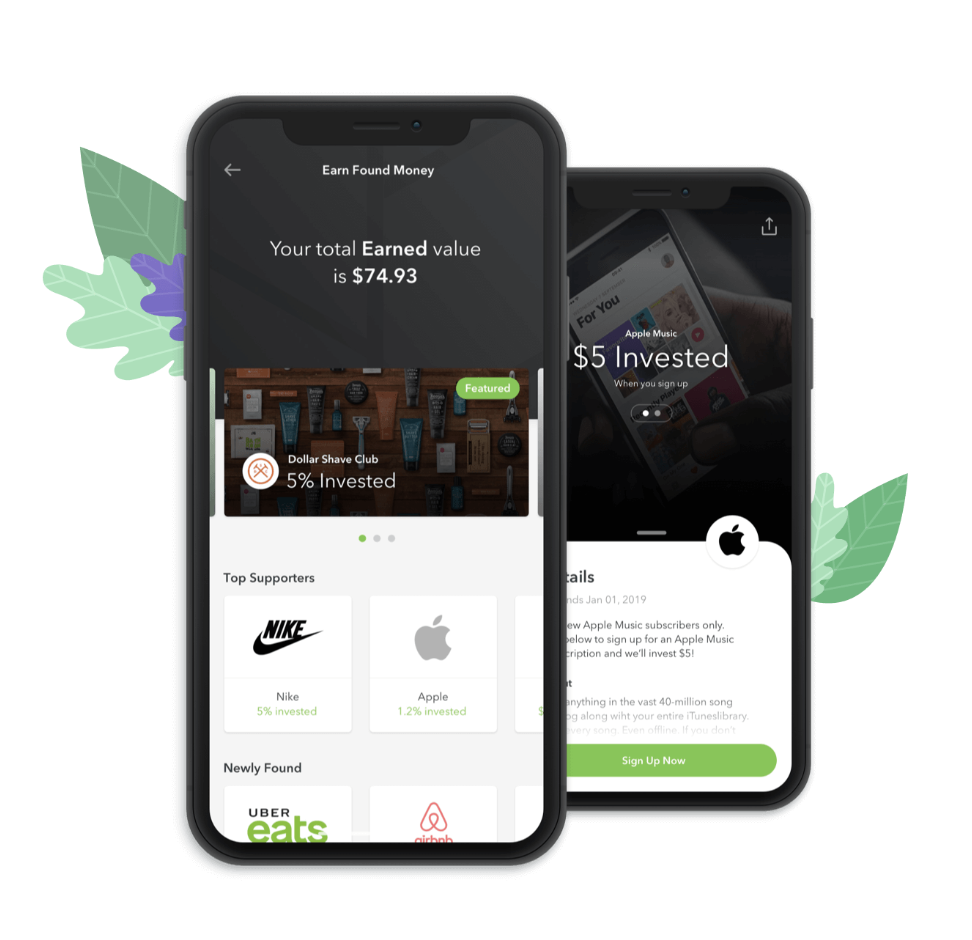

Acorns - Invest Spare Change
Download FreeWally
Wally is a free app that’s become a popular money management tool for millennials. One of the key benefits here is that the platform supports just about any foreign currency, making it a great option for people living outside of the U.S.
So, what does Wally do, then? Well, it’s a personal expense tracking platform that allows you to keep tabs on your expenses like you would at work.
With Wally, you’ll get a clean interface that makes it easy to keep tabs on your spending habits. Instead of logging each purchase manually, Wally allows you to take photos of your receipts and snap some pics on the go.
Basically, this app is best for people who want more visibility into their spending habits, but aren’t going to bother typing every transaction into their Excel spreadsheets at the end of the day.
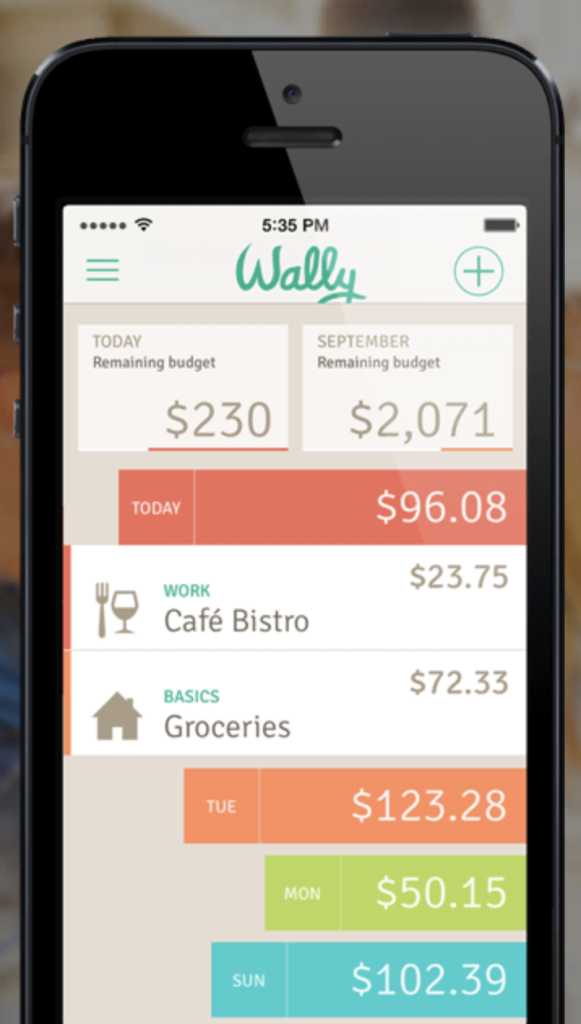
Coinbase
Coinbase is a great option if you’re interested in dabbling in cryptocurrency. This app is ideal for the crypto-beginner; you can trade in Bitcoin, Etherum, Litecoin, and others.
The mobile app is a minimalistic version of the original desktop app. That said, they’ve made it easier to use.
Coinbase fees range from 1.49% to 3.99%, depending on your choice of payment method. Credit card fees tend to be more expensive than other methods, by the way.
Purchase limits are capped at $9,500 a month for first-tier users, but you can increase your limits to $25,000. Sure, you’ll need to provide a few extra details, like your passport or driver’s license, but it’s a minimal chore when you look at the added trading potential.
What makes Coinbase appealing is that it’s more approachable than some of the other crypto-trading platforms. You can set up alerts so you can be tuned into opportunities that meet your buy/sell price. It’s also a smart move if you’re looking for an easy way to send crypto to friends.
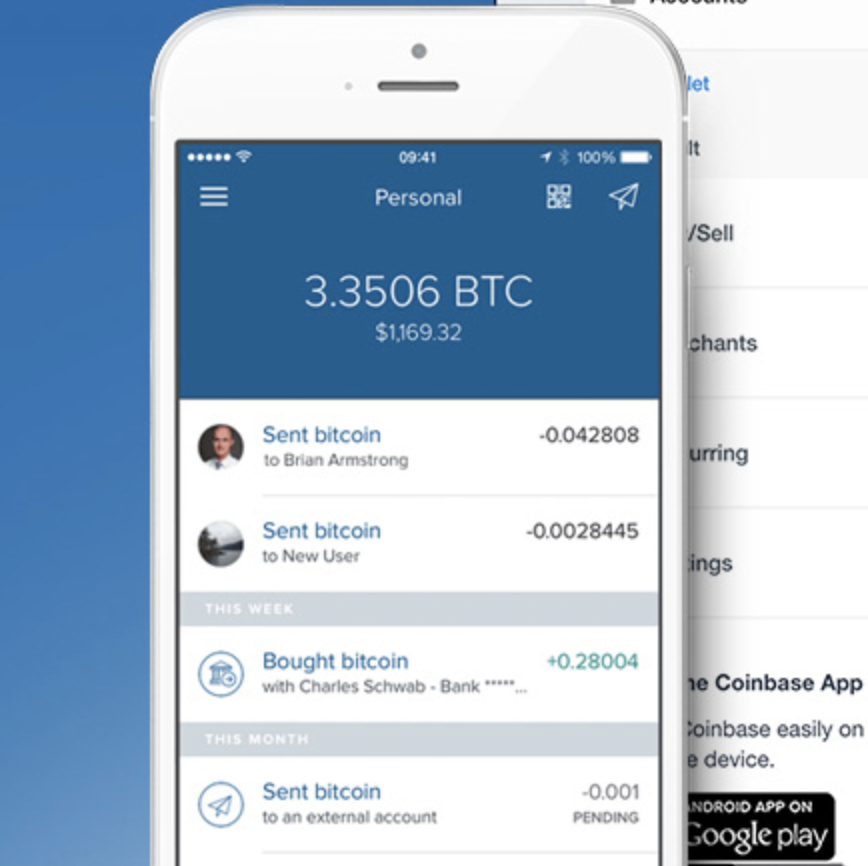
YNAB
You Need a Budget, or YNAB is a popular choice with a unique approach to budgeting. Instead of relying on the envelope-style budgeting method, you’ll build a budget based on your income.
The YNAB method works as follows.
Rule 1: every dollar has a job
As soon as you receive money, you assign each dollar a specific task. This way you can place your rent in one area, savings in another, food, entertainment, etc. all have their own category, so you don’t need to worry about every single purchase. No dollar is unaccounted for, so there’s no such thing as extra money; this forces you to make a decision about all spending, allowing for more intentional choices.
Rule 2: embrace your true expenses
This rule takes account of your true expenses. This is the stuff like holiday gifts, your yearly trip to visit family, your six-month insurance premium. The goal is to make sure that irregular costs won’t send you into a tailspin when they sneak up on you later
Rule 3: roll with the punches
YNAB’s method accounts for the fact that we don’t always follow our budgets as planned. In this case, if you overspend in one category, you’ll just reduce your spending elsewhere.
Rule 4: age your money
Here, the goal is to spend money that’s over 30 days old. While new budgeters might be struggling to stretch their paycheck, the idea is to save at least a month of income so you’re not stressed trying to move money around each month.
The goal here is giving yourself some space to breathe. Old (-ish) money usages means you’re not obsessing over checks clearing or paychecks arriving on time.
YNAB comes in both web and mobile apps and gives you the option to sync your bank accounts automatically or enter each expense manually.
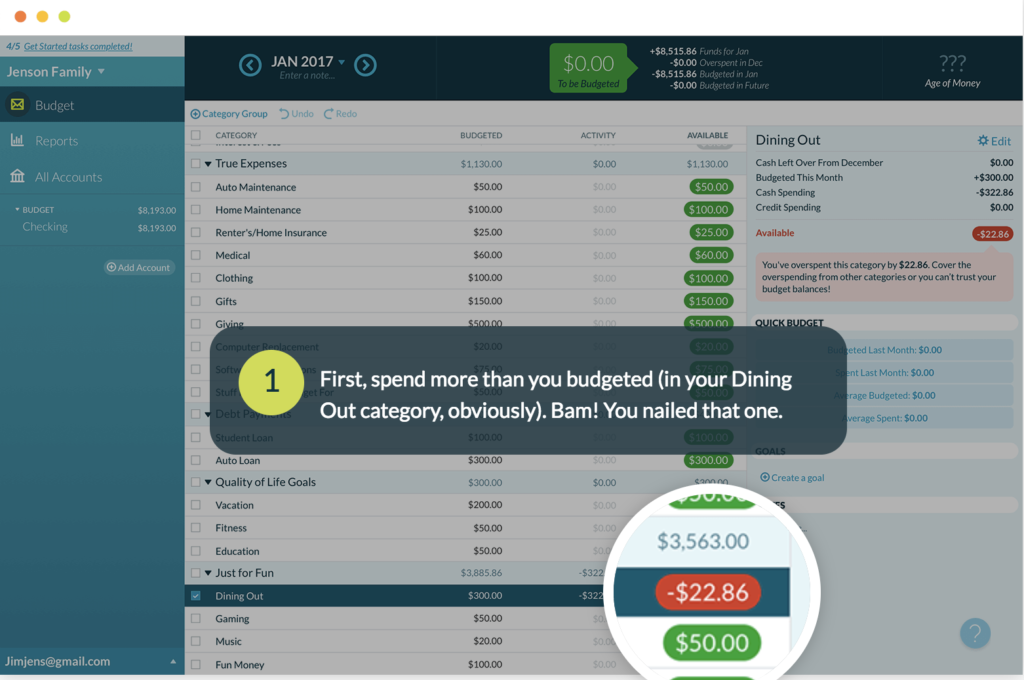
Pocket Guard
PocketGuard functions as a tool for both tracking your spending and protecting you from going over budget. The app links up with your accounts and compares your budget with your actual accounts and income.
The app is super easy to use and connects to your bank account, so information like monthly income and expenses will populate your account as they come and go. PocketGuard tracks recurring expenses like phone bills, cable, and internet, and even helps you comparison shop for better deals.
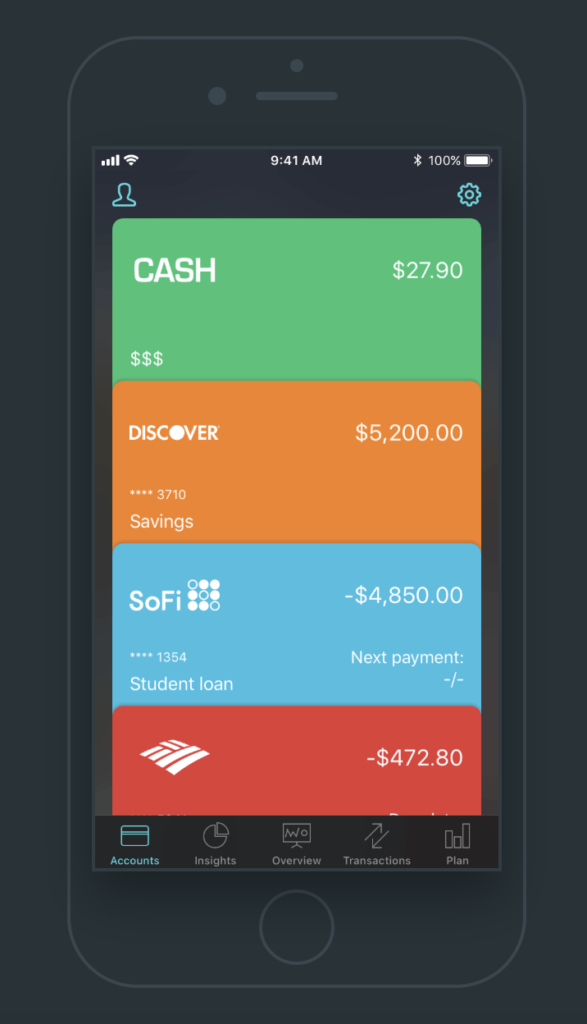
Goodbudget
Goodbudget is a good choice for couples who want to share finances with each other without all the hassle. The app allows you to share and sync budgets with your partner or a roommate.
The system is based on the old-fashioned envelope system. And you’ll get an envelope for everything from rent to groceries and entertainment, as well as savings or vacation funds. You’ll start the process by customizing your envelopes and set a budget for each.
Every time you spend or receive money, you’ll log the transaction into your Goodbudget account. It’s a little annoying to enter your info each time, but the budgeting system is solid. There’s definitely a tradeoff here, we’ll leave it at that.
